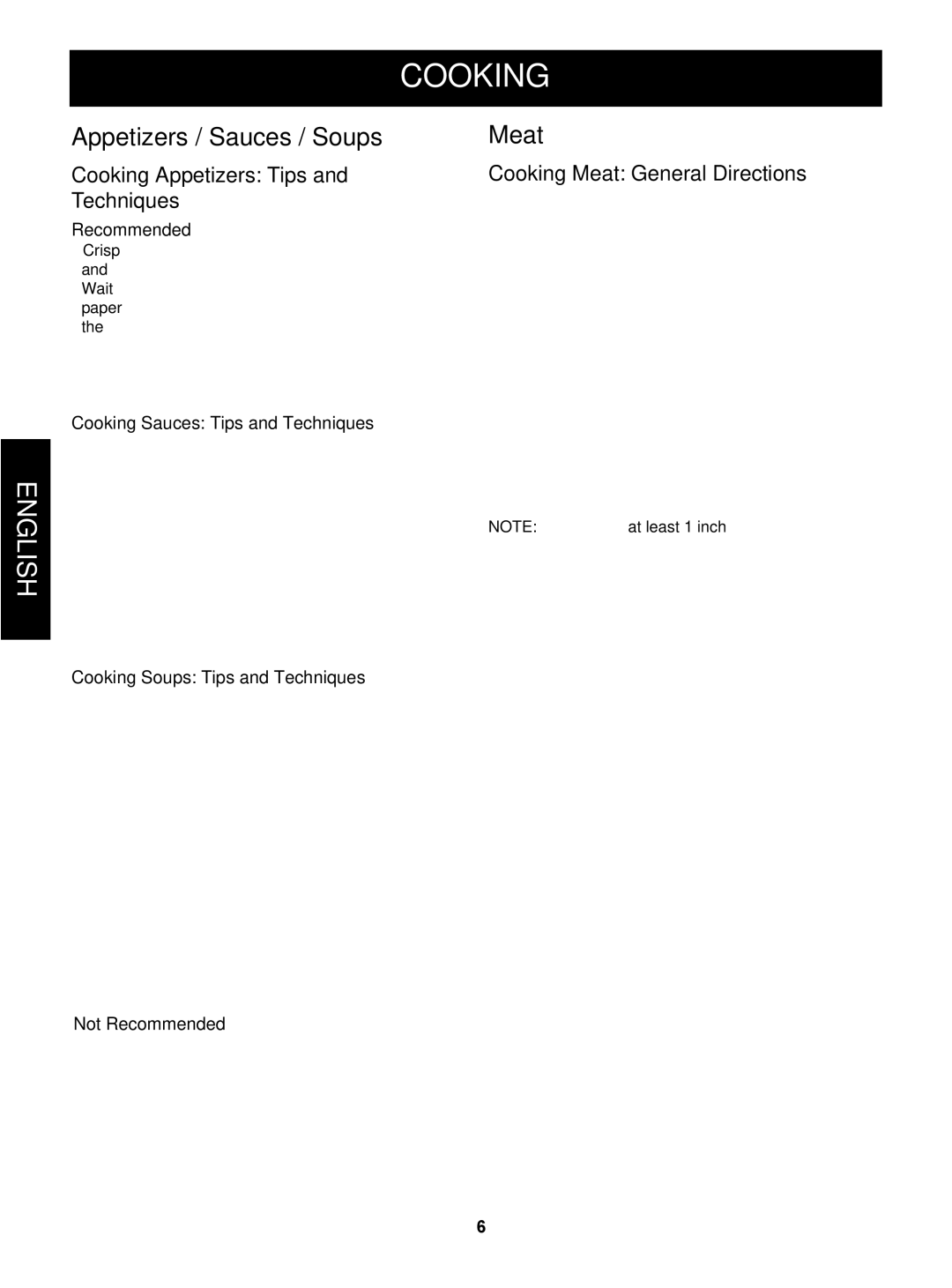
COOKING
ENGLISH
Appetizers / Sauces / Soups
Cooking Appetizers: Tips and Techniques
Recommended
•Crisp crackers, such as melba toast, shredded wheat and crisp rye crackers are best for microwave use. Wait until party time to add the spreads. Place a paper towel under the crackers while they cook in the microwave oven to absorb extra moisture.
•Arrange individual appetizers in a circle for even cooking.
•Stir dips to distribute heat and shorten cooking time.
Cooking Sauces: Tips and Techniques
•Use a microwavable casserole or glass measuring cup that is at least 2 or 3 times the volume of the sauce.
•Sauces made with cornstarch thicken more rapidly than those made with flour.
•Cook sauces made with cornstarch or flour uncovered so you may stir them 2 or 3 times during cooking for a smooth consistency.
•To adapt a conventional sauce or gravy recipe, reduce the amount of liquid slightly.
Cooking Soups: Tips and Techniques
•Cook soups in a microwavable dish which holds double the volume of the recipe ingredients to prevent
•Generally, cover microwaved soups with VENTED plastic wrap or a microwavable lid.
•Cover foods to retain moisture. Uncover foods to retain crispness.
•Avoid overcooking by using the minimum suggested time. Add more time, if necessary, only after checking the food.
•Stirring occasionally will help blend flavors, distribute heat evenly, and may even shorten the cooking time.
•When converting a conventional soup recipe to cook in the microwave, reduce the liquid, salt, and strong seasonings.
Not Recommended
•Appetizers with a crisp coating or puff pastry are best done in a conventional oven with dry heat.
•Breaded products can be warmed in the microwave oven but will not come out crisp.
Meat
Cooking Meat: General Directions
•Prepare the meat for cooking.
-Defrost completely.
-Trim off excess fat to avoid splattering.
-Place the meat, fat side down, on a microwavable rack in a microwavable dish.
-Use oven cooking bag for less tender cuts of meat.
-Arrange the meat so that thicker portions are toward the outside of the dish.
-Cover the meat with waxed paper to prevent splattering.
•Tend the meat as it cooks.
-Drain juices as they accumulate to reduce splattering and keep from overcooking the bottom of the meat.
-Shield thin or bony portions with strips of foil to prevent overcooking.
NOTE: Keep the foil at least 1 inch from the oven walls, and do not cover more than
•Let the meat stand covered with foil
The Meat Cooking Table on the next page provides detailed directions, Power Level, and Cooking Time settings for most cuts of meat.
- 16 -
